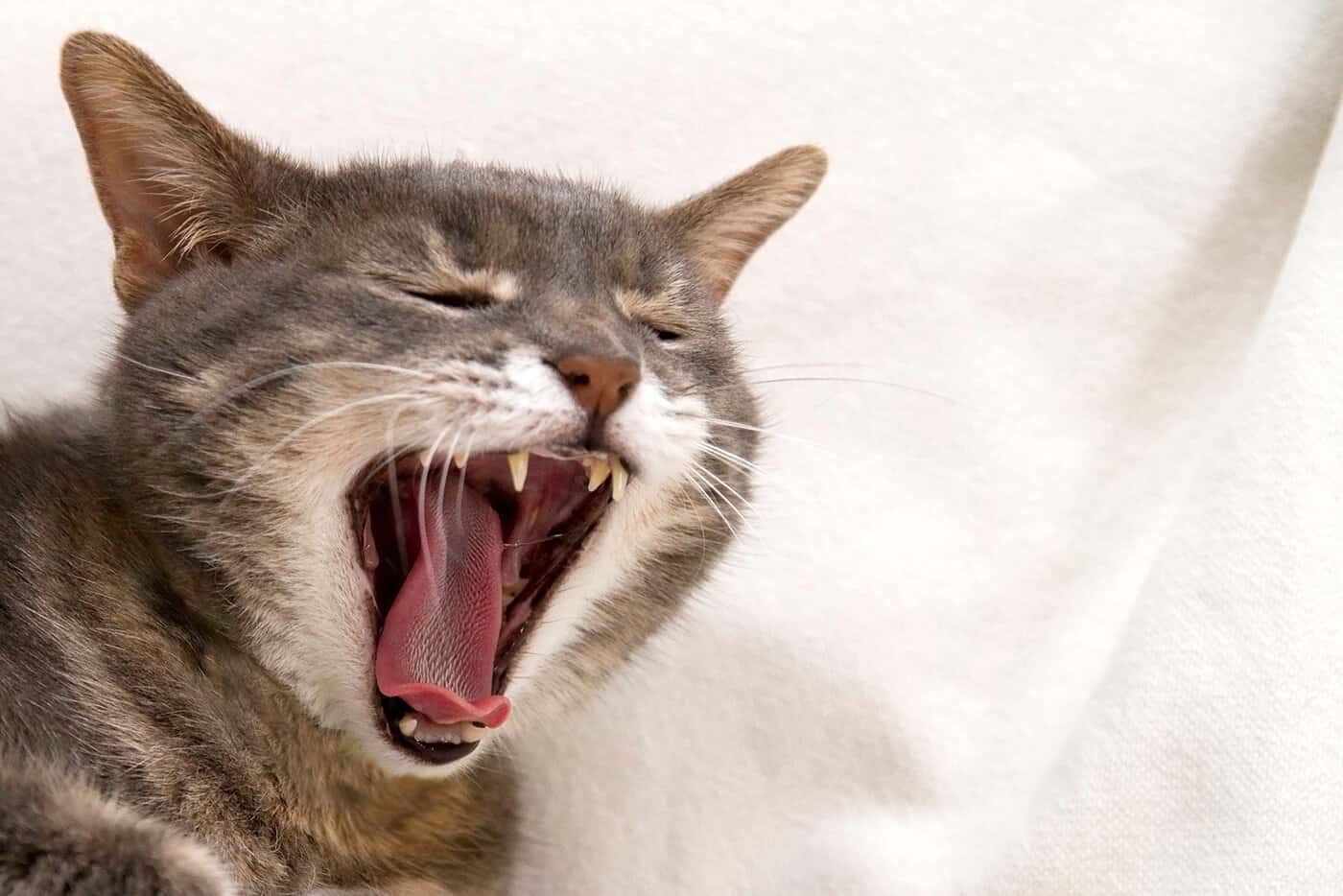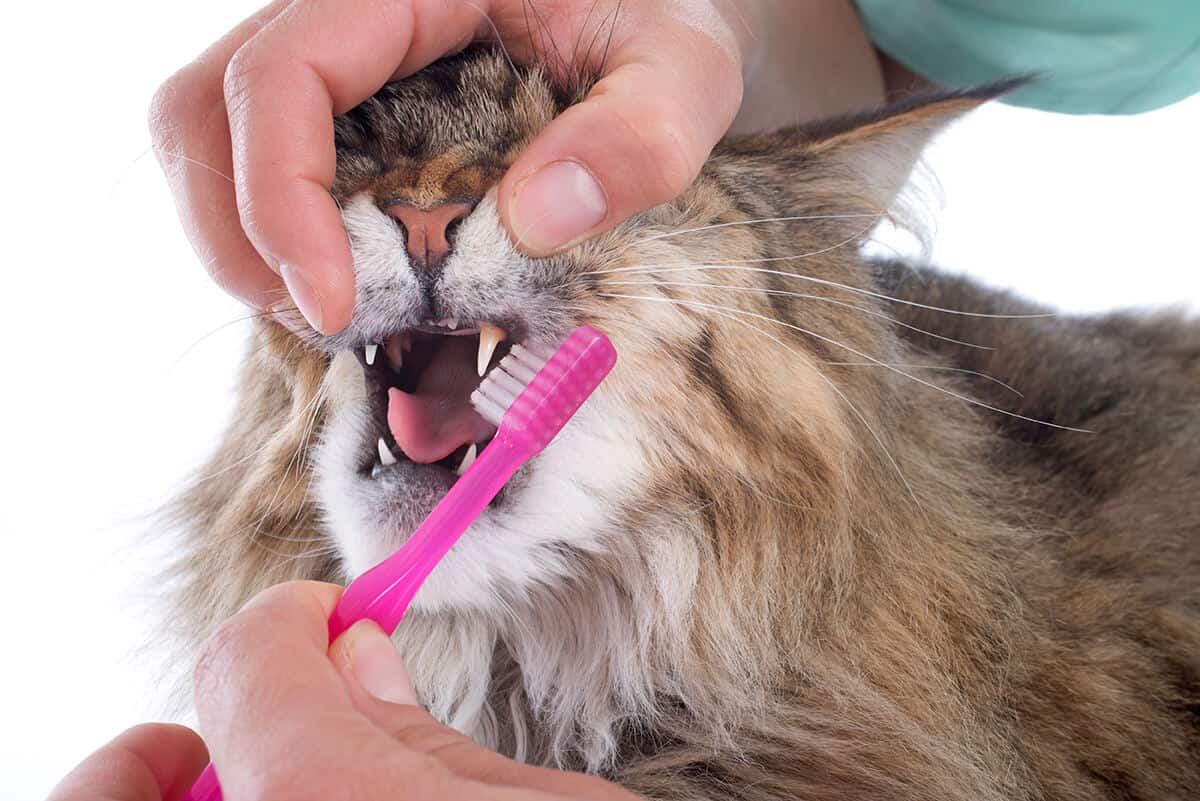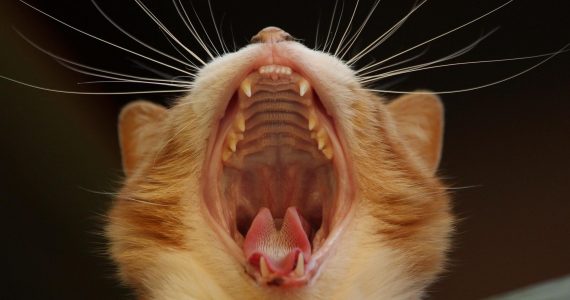Common Questions About Cat Dental Diseases
5 Common Questions Surrounding Cat Dental Diseases
Feline dental disease is quite common and like humans, the severity of these teeth and gum infections increase the older they get. Signs like bad breath, change in appetite, or behavior could indicate they are in pain and suffering from a dental disease. We have listed a few common questions to help you understand the signs and symptoms and when to schedule an oral health examination.
What Are the Main Dental Diseases in Cats?
Periodontal disease is the result of plaque and tartar build-up around the outside of the tooth caused by bacteria in the mouth. Periodontal disease leads to other nasties like tooth resorption, gingivitis and Stomatitis.
Feline Tooth Resorption disease is also a relatively common condition, affecting 20-60% of cats and prevalent in cats five years and older. Each tooth has a root canal and is surrounded by dentin which makes up the bulk of the tooth structure. This painful condition occurs when the dentin erodes the tooth and undermines the bone around it.
Feline Stomatitis occurs when the oral cavity becomes irritated and inflamed. The medical term for this condition is known as feline chronic gingivostomatitis. This condition is painful, and signs will often include weight loss and reclusiveness. If you notice any of these symptoms, it may be a good time to call your vet and schedule an oral examination. If the condition is severe, some cats will require a full mouth extraction. While this diagnosis sounds invasive, the outcome often improves their quality of life, relives the pain, and your cat will still be able to eat soft food.

What Are the Signs of Dental Disease in Cats?
Cats are very stoic and seldom show signs of discomfort and can mask the symptoms of dental disease for months. Often owners do not notice any visible changes in their cats’ oral health, so it’s essential to visit your vet for regular check-ups. In many cases, the first indications of oral pain may include bad breath, weight loss, drooling or reluctance to eat dry kibbles because of inflammation. Behavioral changes like aggressiveness are likely the most noticeable and some cats stop eating entirely because of the pain.
If Surgery Is Necessary, What Happens Next?
Cat dental problems can affect overall health, and the first step would be to visit your vet for a comprehensive oral assessment. Depending on the severity of the condition, it may be necessary to anaesthetize your cat. Cats do not tolerate dental procedures well and extractions will most often be performed under general anesthetic to prevent pain and any further infections from developing. Using general anesthetic allows your veterinarian to conduct a comprehensive oral investigation while minimizing stress and pain.
We use X rays to help identify decay that may not be visible to the naked eye and happening deep within the tooth root. Radiography also helps to detect complications such as stomatitis and resorption disease.
Surgical extractions may be necessary when conditions such as Stomatitis is diagnosed. This is a chronic and painful periodontal disease where the oral cavity is inflamed, and this condition usually creates an environment for secondary bacterial infections to thrive.
Apart from surgical extraction of the affected teeth the procedure will include scaling and polishing with special dental tools to remove all the bacteria and plaque that on occasion will accumulate in little pockets in between the gum and the tooth. If required, your cat will go home with a course of anti-inflammatory pain relief and antibiotics to manage the healing process quickly and effectively. We usually recommend soft food for about five days after the procedure, and we will follow up to make sure your cats’ gums have healed and that their overall health is improving.

What Kind of Pain Medication Can You Give to Cats?
Our vets and nurses can prescribe a range of pain medications depending on several factors such as your cats’ age, medical history, level of pain, infection, procedure and condition being treated. We do not recommend any home remedies or administering any medication without consulting with your veterinarian. So, depending on your cats’ diagnosis, we can prescribe a non-steroid anti-inflammatory such as NSAID, Neurontin or Pangesic oral, which is similar to Morphine to help manage your cats’ pain pre or post-operative.
Can Dental Conditions Be Fatal?
Cats are often perceived as being less complicated and self-sufficient when compared to other pets like dogs which is why it’s easy for a dental problem to go unnoticed. If chronic dental conditions are left untreated, they can result in deep infections that can enter into the bloodstream and cause endocarditis. This infection can be fatal as it affects the heart valve and can cause liver disease, liver abscess and kidney disease.
Periodontal disease is irreversible, which is why prevention and implementing an excellent dental care routine from the start is so important. If possible, familiarize your cat from a young age to having their teeth brushed and cleaned regularly. Visiting your vet for a routine scale and polish at least twice a year will also help to prevent any future dental problems from developing. Older cats or those already diagnosed with periodontal disease will require more frequent checks to make sure they remain healthy and happy.
For more information about cat dental, call our friendly staff on 83400388.

